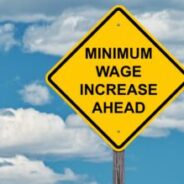In 2018, more than 10,000 companies in the UK released details of their gender pay gap, as ordered by the government. It came following the revelation that just a third of the BBC’s 97 top earners were female, which sparked controversy and consternation among MPs and the general public, not to mention BBC employees.
Following the passing of legislation compelling all companies with 250 UK-based employees or more to disclose their annual gender pay data, the scale of the pay differences between men and women in the UK was truly exposed.
Of the companies that met the government’s initial deadline for submitting their pay information, including smaller companies that offered their data voluntarily, 78% revealed that they paid men more than women, on average. Only 14% of those firms said they paid women more than men, while 8% reported having no pay gap at all.
Those figures changed when the 1,500 or so companies that missed the reporting deadline released their pay data. However, it still doesn’t alter the fact that men in many industries are remunerated more generously than women at the majority of the UK’s largest companies.
The largest gender pay gaps that were initially found were in the construction, finance and aviation sectors. Ryanair’s 71.8% pay gap was one of the widest reported by any company, while other airlines TUI, Thomson, EasyJet and Jet2.com reported pay gaps averaging 45% or higher, a result of the companies’ pilots being almost exclusively male at the time, with women filling the majority of lower-paid cabin crew roles.
The pay gap data also revealed that men were paid higher bonuses than women, with the difference the starkest in the financial services sector. At Barclays, for example, women received the equivalent of a 27p bonus for every £1 bonus that was paid to men.

Time for change
Although it wasn’t and still isn’t clear how many women are being paid less than men for performing equivalent or identical roles, the data did demonstrate that women are woefully underrepresented in senior, high-paying roles.
Speaking as both a recruiter and a human being, it’s sad to think that we still live in a world where men are ultimately valued higher than women in certain areas. What people seem to forget is that the women working in munitions factories during the Second World War were as essential to the war effort as the pilots and soldiers fighting on the front line.
I’ve spent much of my career working with and amongst fantastically talented women, and I would be horrified if any of those holding the same position as me were ever underpaid for no specific reason. And, having now seen the extent of the pay gap in some of the UK’s largest companies, it makes me wonder how badly women have been discriminated on pay due to employers’ concerns over issues such as maternity.
It’s only right that firms failing to address their gender pay gap be punished accordingly. There’s simply no place for archaic, discriminatory practices in today’s workplace. Here’s hoping, however, that any punishments are kept to a minimum and companies get their house in order by giving women a fair and equal shot at reaching the top.
Do you have a view on the gender pay gap? Feel free to share your opinion with us, either through the website or on our social channels.












